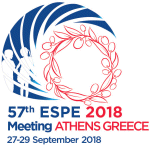
57th Annual ESPE (ESPE 2018)
Athens,
Greece
27 Sept 2018 - 29 Sept 2018

ESPE 2018
57th European Society for Paediatric Endocrinology Annual Meeting
27-29 September 2018
Athens, Greece



